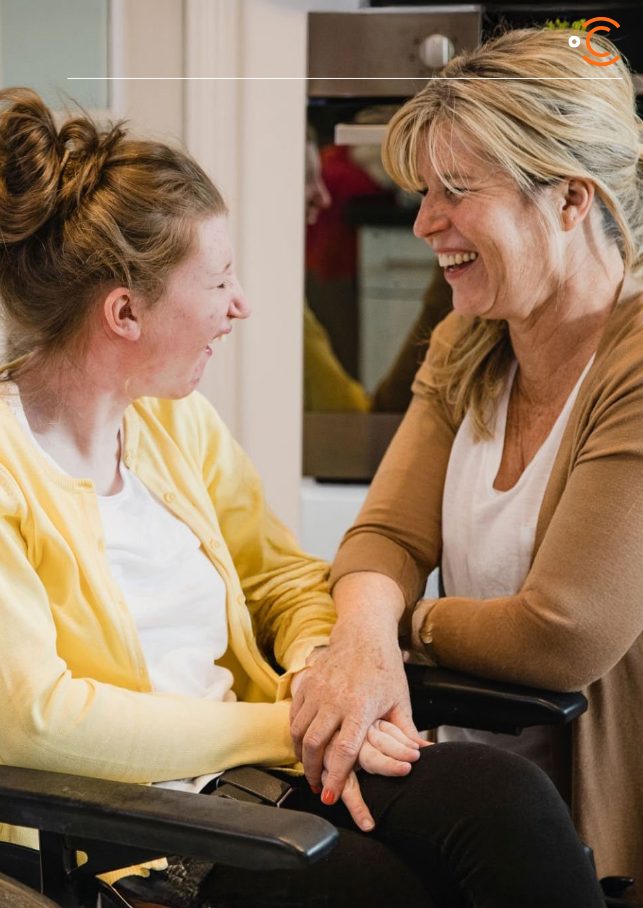Advances in medical technology mean Australians are living longer, retiring later and often balancing work with caring responsibilities. These shifts in our population dynamics mean one thing is certain: more people will step into caring roles.
Already, 1 in 8 Australians are carers. That’s approximately three million people who provide unpaid care and support to a family member or friend who has a disability, mental illness, drug and alcohol dependencies, chronic condition, terminal illness, or who is frail due to age.
The reality is that caring touches everyone. Every employee in a workplace is either caring now, will care for someone in the future, or will eventually need care themselves.
During National Carers Week, 12-18 October, it’s a timely reminder that creating carer-friendly workplaces is no longer optional but rather essential.
The profile of today’s working carer
Findings from Carers NSW 2024 National Carer Survey, which received over 10,000 responses, offer detailed, highly diverse insights into the lives of carers, including what carers do, want, and need.
Survey responses included the following about the carers’ working life.
- 82.6% of respondents were women, with the average age of working carers being 50 for women and 54 for men
- 37.4% of carers in the National Carer Survey were in paid work, while many others were forced to reduce their hours or leave the workforce altogether
- Most working carers from the National Carer Survey were aged between 45 and 64 years old, an age group that typically holds senior positions, extensive corporate knowledge and decades of professional experience. Losing employees in this group can be particularly costly for organisations
- 33.8% of working carers responding to the survey provided care 24/7, balancing around-the-clock responsibilities with the demands of paid work.
Carers responding to the 2024 National Carer Survey also came from diverse backgrounds: 17.2% identify as culturally and linguistically diverse, 3.8% as First Nations people, and 5.5% as LGBTQ+ carers. These figures highlight the need for workplaces to understand and support carers in ways that respect their varied experiences and identities.

The impact of caring on careers
Caring provides enormous value to society, with carers contributing an estimated 2.2 billion hours of unpaid care each year, labour which is worth almost $78 billion annually to the Australian economy. Yet this contribution often comes at a cost to carers themselves:
- 65.8% of respondents reduced their working hours to manage caring responsibilities
- 47.8% left paid work altogether, often at the peak of their careers. Many carers reported declining promotions or leadership opportunities because the additional responsibilities felt incompatible with their caring role
- Psychological distress and social isolation were common, with carers often struggling to access formal support services that align with their working hours.
Without workplace support, carers face higher stress, absenteeism and burnout which then impacts business performance.
Why supporting carers makes business sense
Creating a carer-friendly workplace isn’t just the right thing to do — it’s smart business. Workplaces that recognise and support carers benefit from:
- Improved employee retention, reducing the risk of losing skilled employees
- Reduced recruitment and training costs, replacing a competent team member can cost up to a year of their salary
- Lower stress and absenteeism, leading to fewer sick days and greater productivity
- Stronger employee engagement and morale, employees feel valued when their personal circumstances are acknowledged
- Enhanced reputation, flexibility and inclusivity make organisations more attractive to job seekers, particularly in a competitive talent market.
Carer-friendly policies strengthen both workforce sustainability and organisational culture.
Practical steps to becoming a carer-friendly workplace
The good news is that employers can make a big impact through relatively small changes. Employers can support carers by:
- Offering flexible work options – such as adjusted hours, remote work, or job-sharing arrangements that allow carers to balance responsibilities.
- Creating a culture of openness – encouraging team members to speak about their caring roles without fear of stigma or penalty.
- Providing carer leave entitlements – beyond standard personal leave, to support employees during periods of intense caring responsibility.
- Establishing employee networks – peer support groups can reduce isolation and build community within the workplace.
- Investing in training for managers – to help leaders recognise carers’ needs and respond with empathy and flexibility.
- Connecting employees to external resources – such as Carers NSW programs and information through Carers + Employers.
These initiatives are low-cost compared to the expense of losing experienced employees, and demonstrate genuine commitment to diversity and inclusion.

A shared responsibility
The 2024 National Carer Survey highlights the significant challenges faced by working carers, but it also points to an opportunity. Employment is not just a financial necessity for carers; it provides social connectedness, identity, and a sense of contribution beyond their caring role.
Employers play a critical role in ensuring carers can remain engaged in the workforce without sacrificing their wellbeing. Supporting carers is both a workplace diversity issue and a broader social responsibility.
National Carers Week: A time to reflect and act
National Carers Week is an opportunity for organisations to reflect on the invisible labour that sustains families, communities, and the economy. It is also a call to action. By recognising the unique challenges of working carers and implementing carer-friendly policies, employers can help ensure no one must choose between caring for a loved one and their career.
Carers give so much of their time, energy and love. It’s time workplaces gave something back.
For more information on building a carer-friendly workplace, visit Carers + Employment Hub | Carers NSW

Elena Katrakis has been the CEO of Carers NSW since October 2006. Elena has a strong commitment to social justice and extensive experience advocating on behalf of disadvantaged and vulnerable groups. Elena began her career as a social worker. Prior to joining Carers NSW, Elena worked in the public sector for over 20 years, primarily in the areas of mental health and homelessness.
Elena is a member of the NSW Carers Advisory Council, the Anti-Discrimination NSW Board and was a member of the NSW Ageing and Disability Advisory Board from March 2020 to March 2025. Elena was Appointed UTS Industry Fellow to the Centre for Carers Research for the period August 2019 until June 2021.
